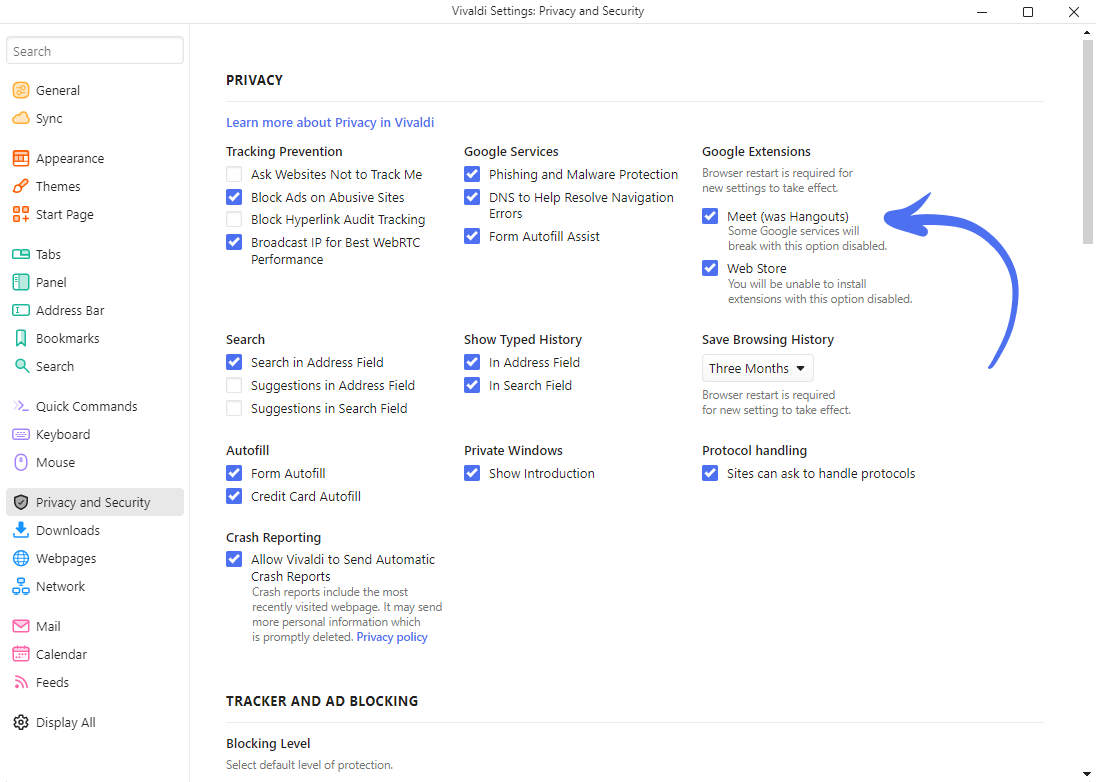Full toot:
Many have tagged us in discussions about a specific Google extension built into Chromium browsers and asked us what we’ve done about it.
This is a part of the Google Meets browser extension, which we bundle in order to allow Google Meets to work. This can be disabled in Settings > Privacy and Security > Google Extensions > Meets. Disabling it will break Meets. We expose this as a setting because we want you to be able to control it, and disable it if you want to.
Disabling it by default would be great, but doing so would break Meets for users who are not able to understand why it’s broken, or what they need to change in order to allow it to work. Unfortunately, when websites break, either because of browser detection, or missing features, users invariably assume the browser is at fault rather than the website, and we have to make choices about what needs to be done to make websites work. We do not take these kinds of decisions lightly.
We do find it very interesting that Google, who run the Chromium browser project, choose to give Meets additional information that is not given to other videoconferencing websites, and this could easily be seen to be uncompetitive behaviour. Hopefully, the EU’s competition enforcement agencies can add this to their radar, and require a change in Google’s Meets functionality.



Vivaldi’s target audience is people who don’t mind proprietary blobs as long as they are “good” or make things “work better.” Given that Vivaldi itself is essentially a proprietary blob combined with a Chromium backend this makes sense.